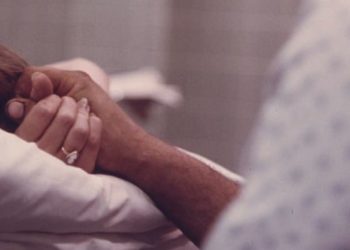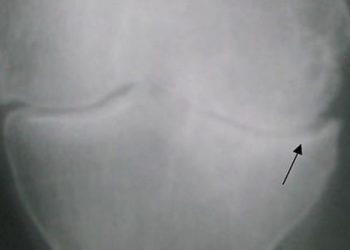Auricular acupressure may improve sleep quality in elderly populations
1. In this randomized, single-blinded, pretest-posttest study, auricular acupressure provided improved sleep quality and objective polysomnography measures amongst elderly people with osteoarthritis who live in nursing homes, compared to placebo.
2. Additionally, auricular acupressure intervention reduced pain symptoms and objectively increased melatonin levels in the elderly cohort.
Evidence Rating Level: 2 (Good)
Elderly populations are commonly faced with increased incidences of sleep disorders and adjacent osteoarthritis. Although pharmacological and non-pharmacological interventions have been investigated for pain and sleep improvements, little is known regarding appropriate interventions in the elderly population. Auricular acupressure (AA) is a therapy that has been studied to improve sleep and reduce pain by applying pressure to auricular points. This study sought to evaluate its effectiveness as an extended intervention course in an elderly population with sleep disorders and osteoarthritis.
This study conducted a randomized, single-blinded, placebo-controlled study in South Korea that included patients 65 years or older who had osteoarthritis and lived in a nursing home. Participants were excluded if they were using alternative therapies to improve sleep or improve pain, took sleeping pills, or had severe neurological disorders or cognitive impairment. Participants were randomized to either a placebo group (n=26) or treatment group (n=26). The treatment was an 8-week program of AA whereases the placebo group received comparable pressure therapy but on non-auricular pressure points. Participants all underwent polysomnography and completed subjective sleep quality and pain scales.
Overall, this study showed decreased subjective sleep scores after four weeks of the intervention, suggesting improved subjective sleep. There were statistically significant differences after 8 weeks in subjective sleep quality. Furthermore, objective measurements of sleep using polysomnography analysis and actigraphy suggest reduced duration and number of awakenings in the intervention group, compared to control. Finally, subjective pain was reported as significantly lower in the intervention group compared to control, suggesting AA may reduce pain. However, this study was certainly limited by its small participant number in both study arms, as well as self-reporting bias. Nonetheless, this study was significant in suggesting that accurate AA reflexology methods may have a beneficial effect on sleep and pain.
Click to read the study in EXPLORE: The Journal of Science & Healing
Image: PD
©2022 2 Minute Medicine, Inc. All rights reserved. No works may be reproduced without expressed written consent from 2 Minute Medicine, Inc. Inquire about licensing here. No article should be construed as medical advice and is not intended as such by the authors or by 2 Minute Medicine, Inc.







